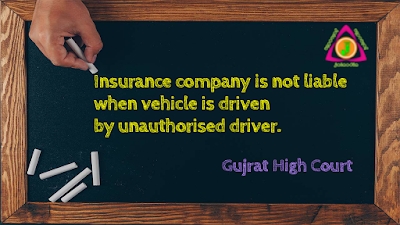Once the actual occurrence of the accident, has been established, then the Tribunal’s role would be to calculate the quantum of just compensation if the accident had taken place by reason of negligence of the driver of a motor vehicle.
We have no hesitation in observing that such a hyper technical and trivial approach of the High Court cannot be sustained in a case for compensation under the Act, in connection with a motor vehicle accident resulting in the death of a family member. Recently, in Mangla Ram Vs. Oriental Insurance Company Limited and Ors., (to which one of us, Khanwilkar, J. was a party), this Court has restated the position as to the approach to be adopted in accident claim cases. In that case, the Court was dealing with a case of an accident between a motorcycle and a jeep, where the Tribunal had relied upon the FIR and charge sheet, as well as the accompanying statements of the complainant and witnesses, to opine that the police records confirmed the occurrence of an accident and also the identity of the offending jeep but the High Court had overturned that finding inter alia on the ground that the oral evidence supporting such a finding had been discarded by the Tribunal itself and that reliance solely on the document forming part of the police record was insufficient to arrive at such a finding. Disapproving that approach, this Court, after adverting to multitude of cases under the Act, noted as follows:
“22. The question is: Whether this approach of the High Court can be sustained in law? While dealing with a similar situation, this Court in Bimla Devi noted the defence of the driver and conductor of the bus which inter alia was to cast a doubt on the police record indicating that the person standing at the rear side of the bus, suffered head injury when the bus was being reversed without blowing any horn. This Court observed that while dealing with the claim petition in terms of Section 166 of the Motor Vehicles Act, 1988, the Tribunal stricto sensu is not bound by the pleadings of the parties, its function is to determine the amount of fair compensation. In paras 1115, the Court observed thus: (SCC pp. 53334)
“11.
While dealing with a claim petition in terms of Section 166 of the Motor Vehicles Act, 1988, a tribunal stricto sensu is not bound by the pleadings of the parties; its function being to determine the amount of fair compensation in the event an accident has taken place by reason of negligence of that driver of a motor vehicle. It is true that occurrence of an accident having regard to the provisions contained in Section 166 of the Act is a sine qua non for entertaining a claim petition but that would not mean that despite evidence to the effect that death of the claimant’s predecessor had taken place by reason of an accident caused by a motor vehicle, the same would be ignored only on the basis of a postmortem report visàvis the averments made in a claim petition.12. The deceased was a constable. Death took place near a police station. The postmortem report clearly suggests that the deceased died of a brain injury. The place of accident is not far from the police station. It is, therefore, difficult to believe the story of the driver of the bus that he slept in the bus and in the morning found a dead body wrapped in a blanket. If the death of the constable had taken place earlier, it is wholly unlikely that his dead body in a small town like Dharampur would remain undetected throughout the night particularly when it was lying at a busstand and near a police station. In such an event, the Court can presume that the police officers themselves should have taken possession of the dead body.
13. The learned Tribunal, in our opinion, has rightly proceeded on the basis that apparently there was absolutely no reason to falsely implicate Respondents 2 and 3. The claimant was not at the place of occurrence. She, therefore, might not be aware of the details as to how the accident took place but the fact that the first information report had been lodged in relation to an accident could not have been ignored.
14. Some discrepancies in the evidence of the claimant’s witnesses might have occurred but the core question before the Tribunal and consequently before the High Court was as to whether the bus in question was involved in the accident or not. For the purpose of determining the said issue, the Court was required to apply the principle underlying the burden of proof in terms of the provisions of Section 106 of the Evidence Act, 1872 as to whether a dead body wrapped in a blanket had been found at the spot at such an early hour, which was required to be proved by Respondents 2 and 3.
15. In a situation of this nature, the Tribunal has rightly taken a holistic view of the matter. It was necessary to be borne in mind that strict proof of an accident caused by a particular bus in a particular manner may not be possible to be done by the claimants. The claimants were merely to establish their case on the touchstone of preponderance of probability. The standard of proof beyond reasonable doubt could not have been applied. For the said purpose, the High Court should have taken into consideration the respective stories set forth by both the parties.” (emphasis supplied)
The Court restated the legal position that the claimants were merely to establish their case on the touchstone of preponderance of probability and standard of proof beyond reasonable doubt cannot be applied by the Tribunal while dealing with the motor accident cases. Even in that case, the view taken by the High Court to reverse similar findings, recorded by the Tribunal was set aside.






